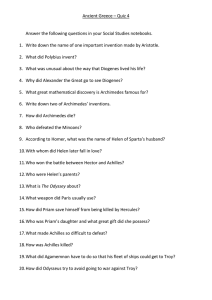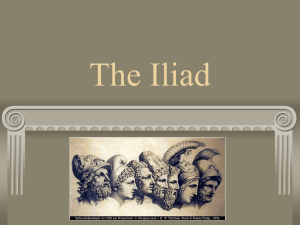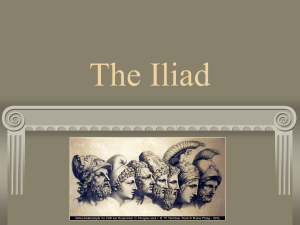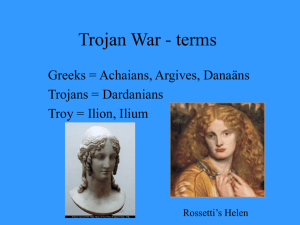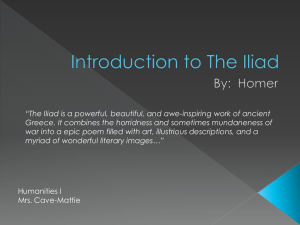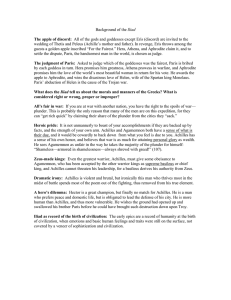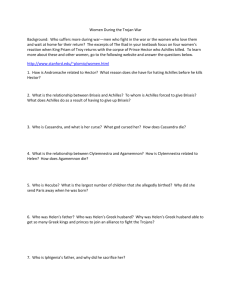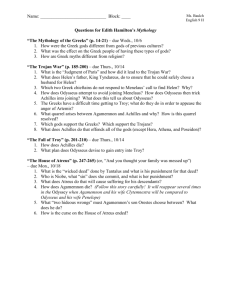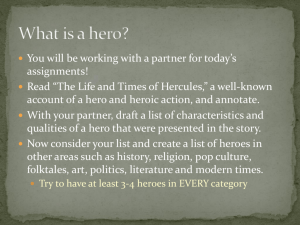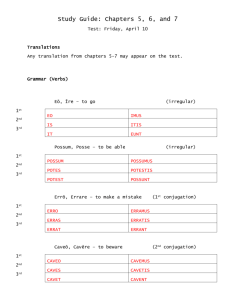Chapter Thirteen – The Trojan War
advertisement
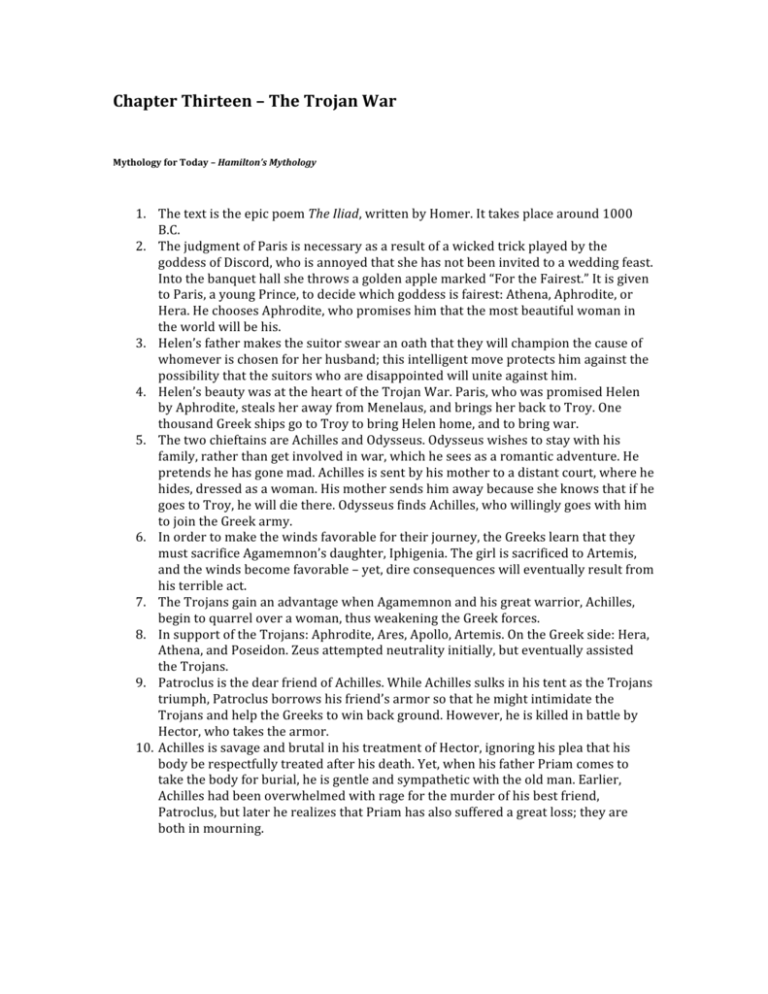
Chapter Thirteen – The Trojan War Mythology for Today – Hamilton’s Mythology 1. The text is the epic poem The Iliad, written by Homer. It takes place around 1000 B.C. 2. The judgment of Paris is necessary as a result of a wicked trick played by the goddess of Discord, who is annoyed that she has not been invited to a wedding feast. Into the banquet hall she throws a golden apple marked “For the Fairest.” It is given to Paris, a young Prince, to decide which goddess is fairest: Athena, Aphrodite, or Hera. He chooses Aphrodite, who promises him that the most beautiful woman in the world will be his. 3. Helen’s father makes the suitor swear an oath that they will champion the cause of whomever is chosen for her husband; this intelligent move protects him against the possibility that the suitors who are disappointed will unite against him. 4. Helen’s beauty was at the heart of the Trojan War. Paris, who was promised Helen by Aphrodite, steals her away from Menelaus, and brings her back to Troy. One thousand Greek ships go to Troy to bring Helen home, and to bring war. 5. The two chieftains are Achilles and Odysseus. Odysseus wishes to stay with his family, rather than get involved in war, which he sees as a romantic adventure. He pretends he has gone mad. Achilles is sent by his mother to a distant court, where he hides, dressed as a woman. His mother sends him away because she knows that if he goes to Troy, he will die there. Odysseus finds Achilles, who willingly goes with him to join the Greek army. 6. In order to make the winds favorable for their journey, the Greeks learn that they must sacrifice Agamemnon’s daughter, Iphigenia. The girl is sacrificed to Artemis, and the winds become favorable – yet, dire consequences will eventually result from his terrible act. 7. The Trojans gain an advantage when Agamemnon and his great warrior, Achilles, begin to quarrel over a woman, thus weakening the Greek forces. 8. In support of the Trojans: Aphrodite, Ares, Apollo, Artemis. On the Greek side: Hera, Athena, and Poseidon. Zeus attempted neutrality initially, but eventually assisted the Trojans. 9. Patroclus is the dear friend of Achilles. While Achilles sulks in his tent as the Trojans triumph, Patroclus borrows his friend’s armor so that he might intimidate the Trojans and help the Greeks to win back ground. However, he is killed in battle by Hector, who takes the armor. 10. Achilles is savage and brutal in his treatment of Hector, ignoring his plea that his body be respectfully treated after his death. Yet, when his father Priam comes to take the body for burial, he is gentle and sympathetic with the old man. Earlier, Achilles had been overwhelmed with rage for the murder of his best friend, Patroclus, but later he realizes that Priam has also suffered a great loss; they are both in mourning.
